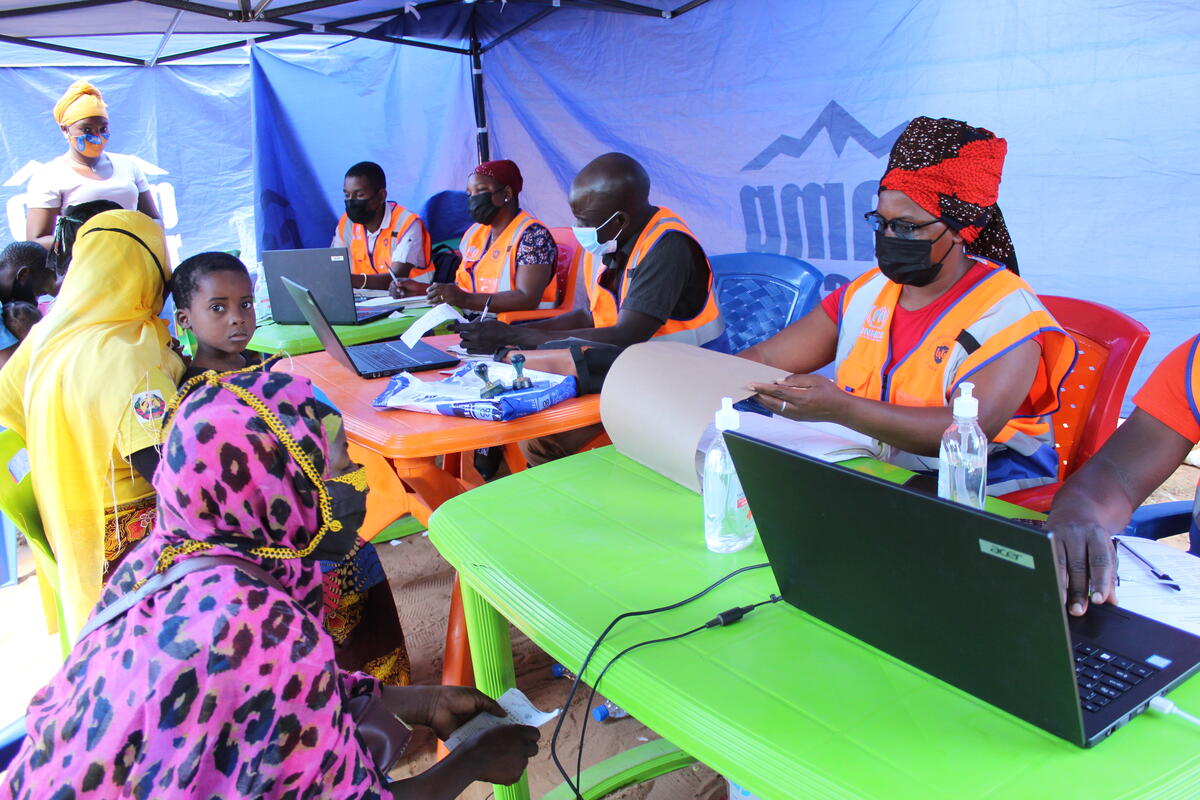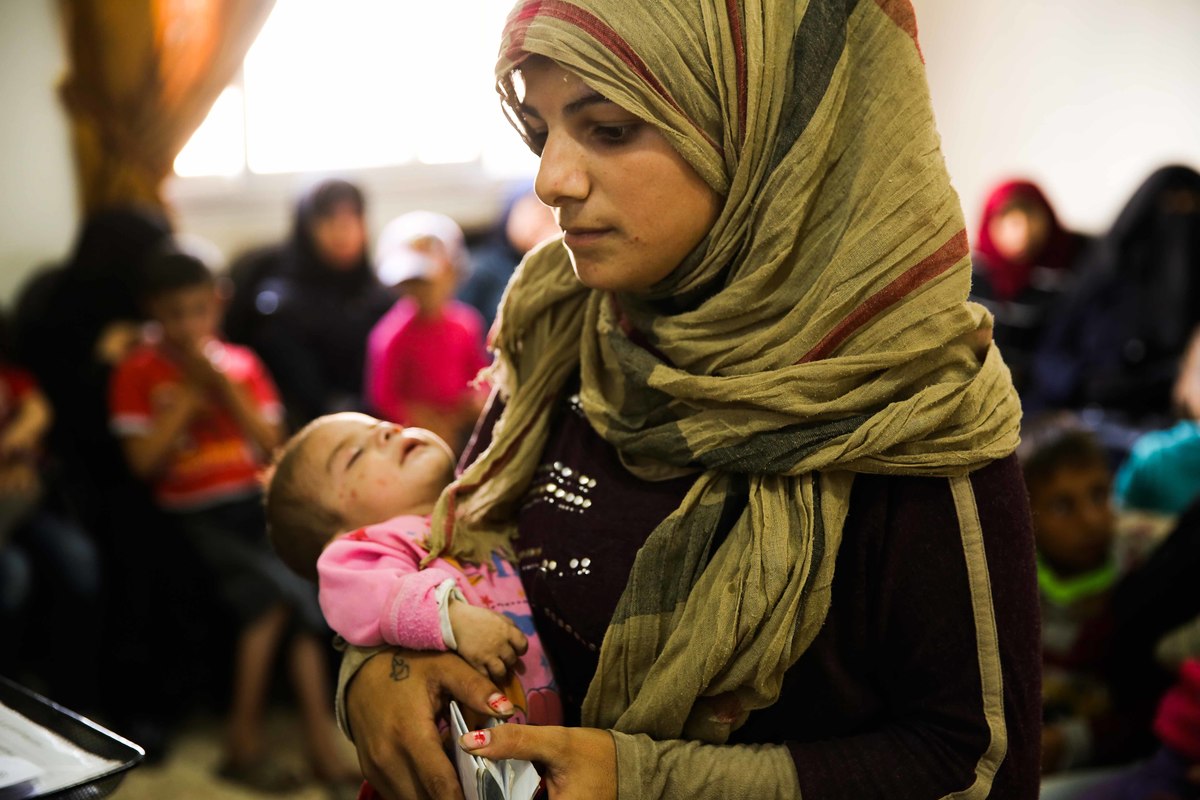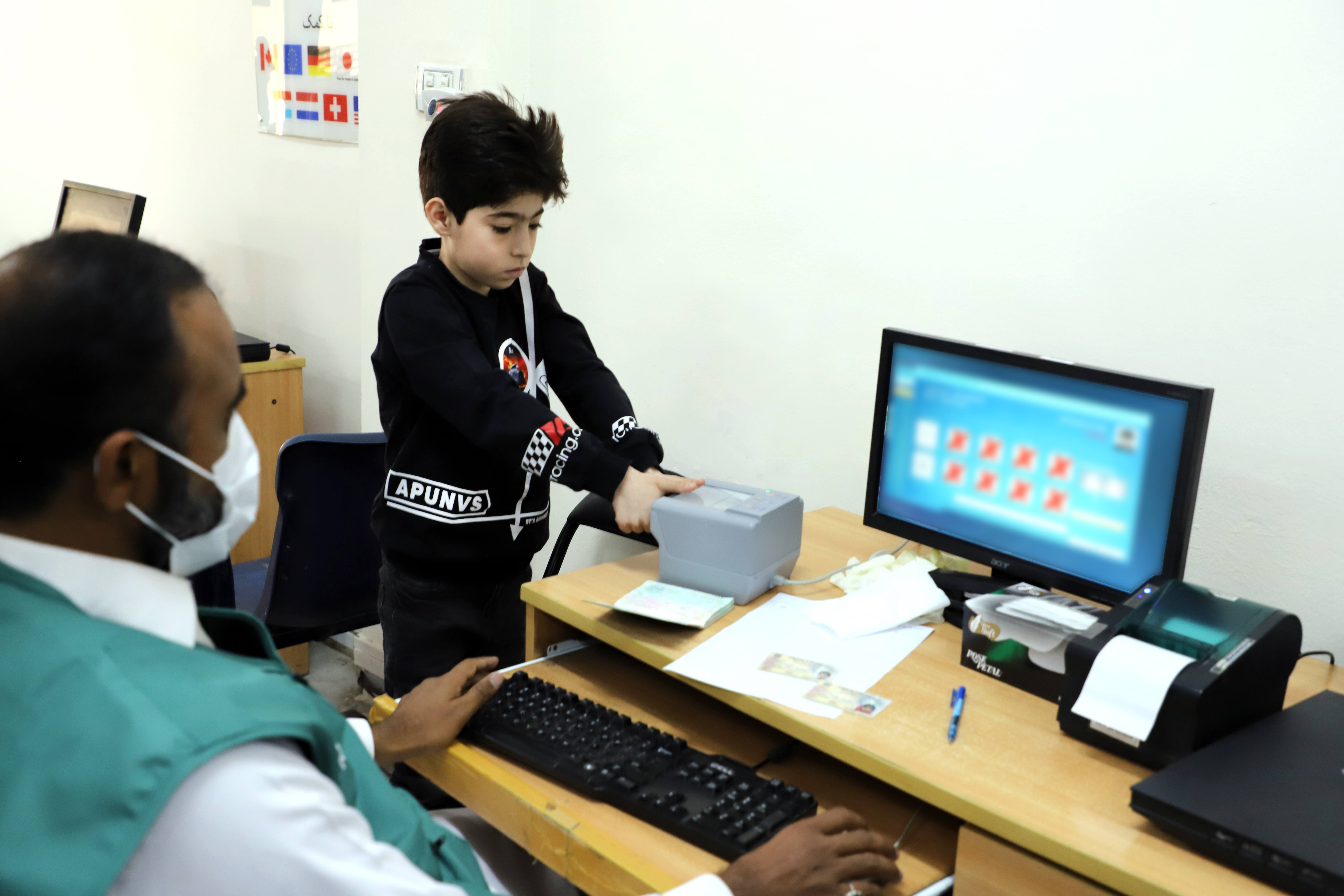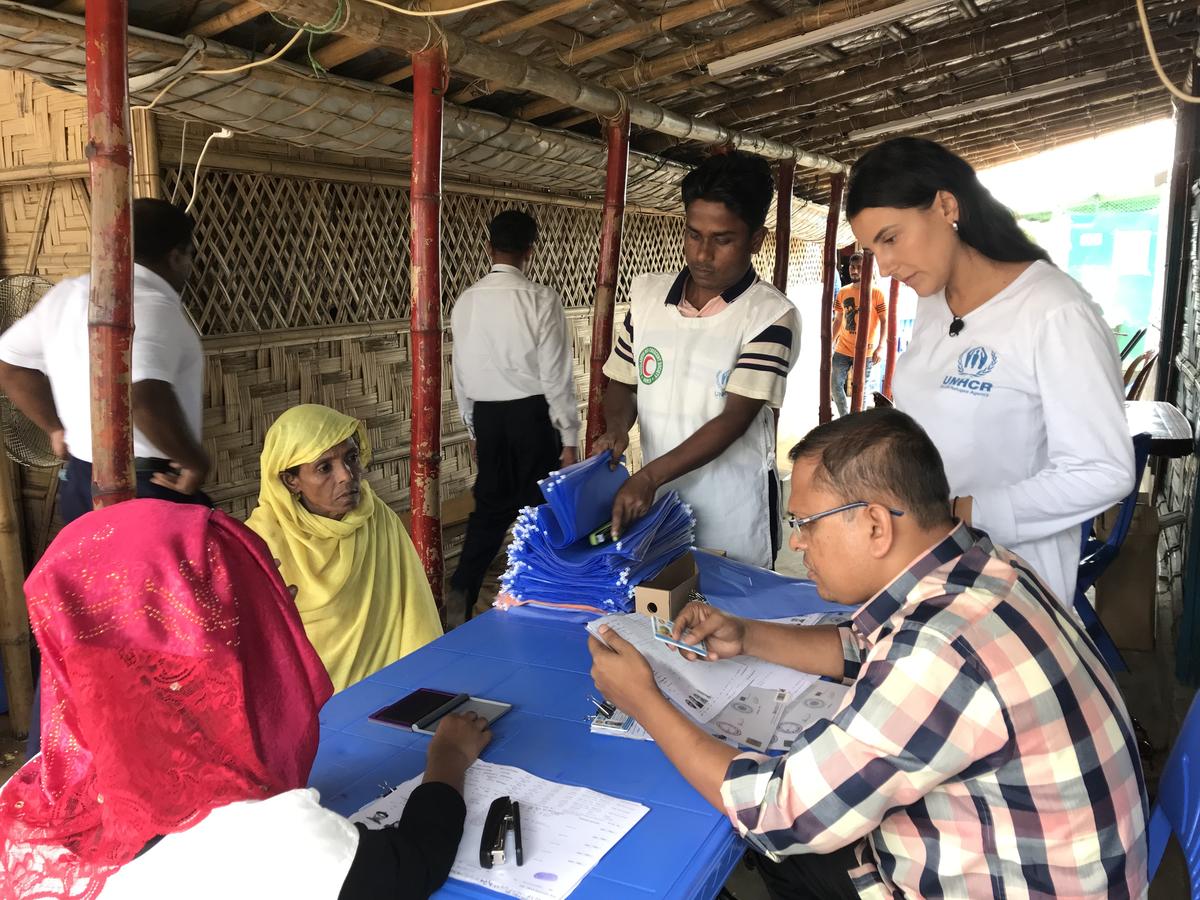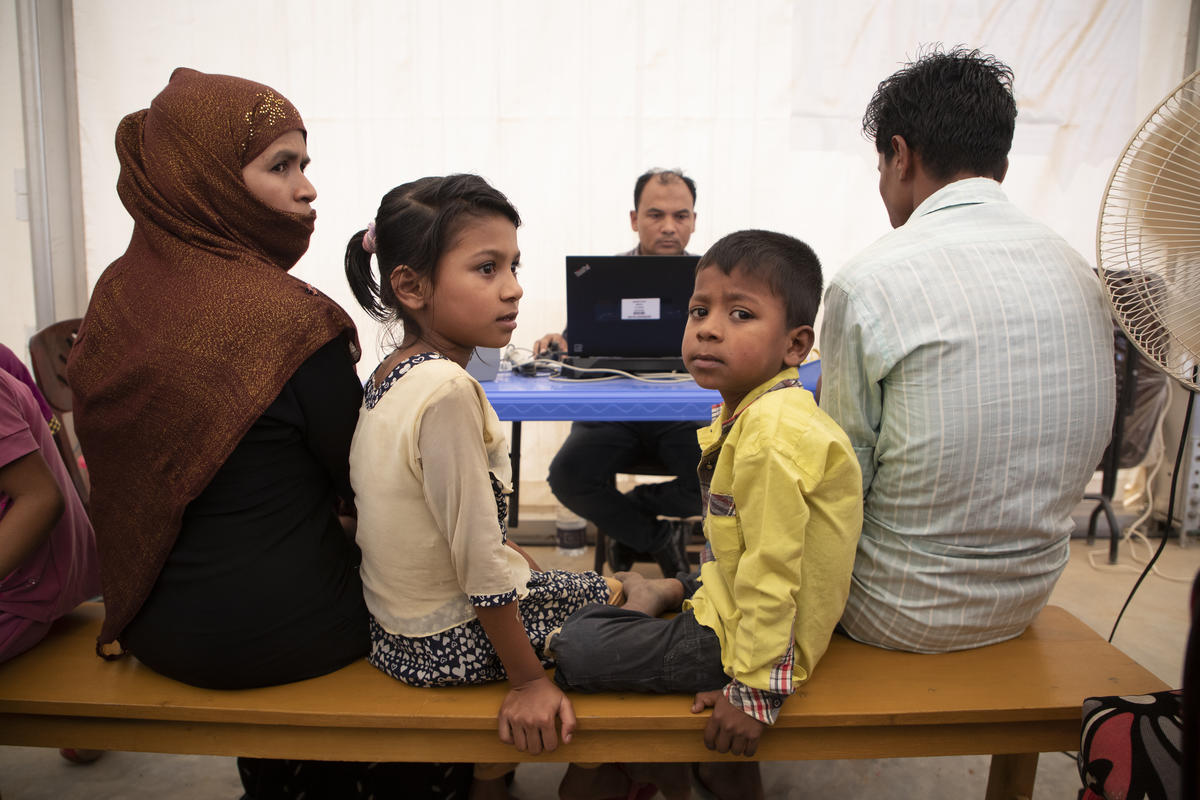Communities help UNHCR's work along Ecuador's northern border
Communities help UNHCR's work along Ecuador's northern border

BARRANCA BERMEJA, Ecuador, July 24 (UNHCR) - At the border with Colombia on the bank of the San Miguel River, the small village of Barrancabermeja is typical of many along Ecuador's northern border. The place is poor and under-developed; some 50 families live in a few wooden huts covered with sheets of zinc. Around 80 percent of the population is Colombian.
For the past two years, UNHCR has been coming on regular visits from its field office in the provincial capital of Lago Agrio, some two hours away, on often impassable dirt roads. Because the community is so remote, each mission tries to cover as much as possible, providing not only preliminary registration for those who may want to claim asylum, but also humanitarian assistance.
"These missions help us identify and assist communities with a large number of Colombians who are not registered with the authorities but may need protection and assistance," explained the head of UNHCR local field office, Oscar Butragueño, during a visit to Barrancabermeja last week.
An estimated 250,000 Colombians have fled to Ecuador to escape the armed conflict at home, making Ecuador the Latin American country with the highest number of people in need of international protection. Yet to date, only 45,000 have registered with the government or with UNHCR, leaving thousands more without legal protection and limited or no access to public services.
UNHCR is conducting a nationwide survey this year to locate these tens of thousands of Colombians and assess their need for assistance and international protection. In the meantime, its efforts to reach out to remote communities along the northern border are already paying off.
In the past two years, Butragueño and his staff have developed strong relations with the people of Barrancabermeja as part of the UNHCR strategy to develop informal "protection networks" along the border. These networks involve the local communities in helping newcomers and put them in touch with UNHCR if needed. The system works well, and this is how the office recently got to know about 12 Colombian families living in hardship in a remote river settlement.
The 12 families from Providencia made the journey downriver to Barrancabermeja last week and were already waiting when UNHCR and the Red Cross finally arrived, after a worse than usual trip during which their car got stuck in the mud twice and the team had to repair a partly-collapsed wooden bridge. Among those expecting them was Natalia, who arrived in Providencia three years ago after her house was bombed.
"It has been very difficult, with no money and five children," she explained, adding she had not known she was entitled to ask for asylum. "I am very poor, but I am going to keep going and do everything I can to get Abraham out of this rut."
Abraham is her 14-year-old son, who has not been able to study since he came to Providencia. Natalia's most pressing concern was for the health of the boy, who had felt ill for days. After the Red Cross doctor examined him, the boy returned with the team to Lago Agrio to receive treatment for suspected malaria.
In a makeshift office improvised by setting up a laptop computer on a pool table, the team set to work under the watchful eye of the local parrot. Some 75 people were registered on that day, most of them after years in Ecuador - like 47-year-old Patricia, who arrived twelve years ago and has since had two more children whose births have not been officially registered in either country.
While the registration went on, the rest of the team was busy distributing rations from the World Food Programme, as well as providing medical help and psychological support. At the sight of the familiar white plastic bags with the blue United Nations logo, the local pet was the first to react.
"Mum, Dad! Here comes the rice!" the small parrot shrieked without cease for the rest of the day.
The Ecuadorian government has put forward a Plan for Peace and Development at the Ecuadorian border that includes attention to Colombians in need of assistance in communities like Barrancabermeja or La Providencia. UNHCR has welcomed this initiative and offered to contribute its full support and expertise.
* Names have been changed to protect the identity of the people.
By Xavier Orellana in Sucumbíos, Ecuador



